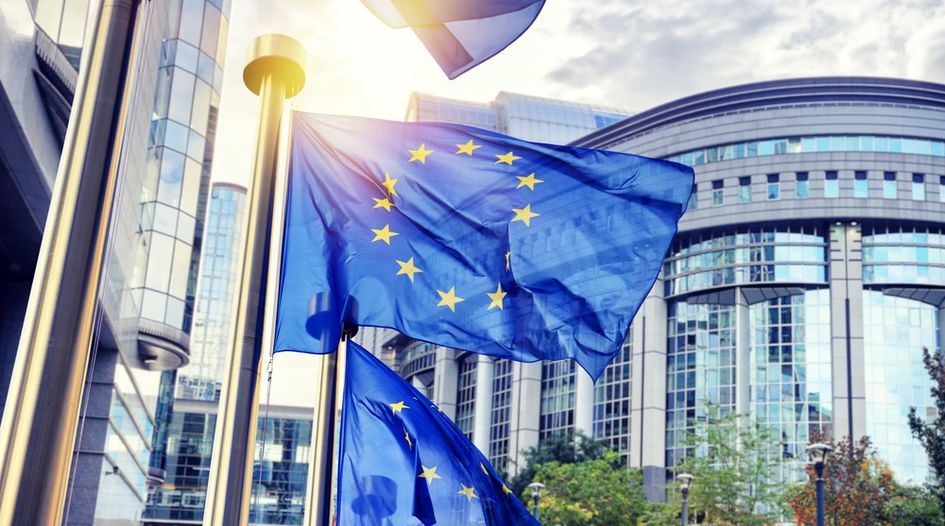Apple and Google targeted at UPC by new European patent monetisation entity

The suing of Big Tech giants has been one of the most significant recent trends at Europe’s Unified Patent Court, as has the growing use of the court by non-practicing entities and patent monetisation companies.
These trends are now being continued by two UPC infringement lawsuits targeting tech powerhouses Google and Apple, neither of which had previously been involved in proceedings at the court. Making the suits even more interesting, both were filed by a new European patent monetisation outfit, Ona Patents.
Both complaints were filed (though not publicised) on 14 March at the Dusseldorf Local Division, which has been the UPC’s second most popular venue for infringement disputes (after the Munich Local Division) since the court’s opening in June. Both complaints concern the same European patent – EP 2 263 098 – which relates to the “positioning of mobile objects based on mutually transmitted signals”. Applied for in 2010, the patent was granted in 2014 and faced no challenge during the Opposition period.
Though the lawsuits have been filed by Ona Patents, the patent is owned Ekahua Oy, a Finnish software services company specialising in the optimisation of WiFi. All three inventors are also based in Finland. The complaints set up the prospect of a David-versus-Goliath battle at the UPC.
The nature of the relationship between the patent owner and the complainant, Ona Patents, is not clear. However, the litigant’s one-page website, states that “Ona Patents uses its know-how and vast experience in patent monetization to design and implement a strategy especially tailored to your patents, fully committed as your patent monetization partner to thoroughly analyze, prepare and carry out a process that leads to maximizing the value of your patents.” Similarly, Ona’s Linkedin page states that it offers “patent monetization management and advisory”. Ekahua appears to have placed its IP right under Ona’s management for monetisation purposes, though the terms of an agreement are unknown.
Ona is also a new and relatively small outfit. Founded in Barcelona in November 2022, it claims to have between two and 10 employees, though only one is known publicly. This is the company’s founder and Managing Director, Raul Diaz Morales, who until March 2023 was VP of Patent Advisory Services at IPwe, the Erich Spangenberg-founded IP services company which has since entered bankruptcy proceedings. Before joining IPwe in 2019, Diaz Morales worked as a licensing executive alongside Spangenberg at SK14 Advisors, and previously held positions at Marathon Patent Group and Munich Innovation Group.
Ona is represented in the two lawsuits by Kather Augenstein’s Christof Augenstein, who has become one of the most frequently instructed UPC representatives over the past year. Google, on the other hand, has instructed Marcus Grosch of Quinn Emanuel, while Apple has chosen Tilman Mueller-Stoy of Bardehle Pagenberg, both of whom are also experienced in acting before the new court.
The two infringement complaints appear to be Ona’s first foray into litigation; it has not been involved in any US patent disputes and has not been publically linked to any other European spats. They also appear to be the first UPC lawsuits filed by monetisation entity working in partnership with a patentee.
These suits are by no means the first to be filed at the UPC by an NPE, however. For example, at least two inventor-led NPEs – ICPillar and Headwater Research – have taken action at the new court. An Atlantic IP Services-affiliated company, Lionra Technologies, has asserted a patent that previously belonged Harris Corporation. Meanwhile, US NPE Network System Technologies is litigating with a patent that was previously owned by Philips. In recent days, moreover, Daedalus Prime – which has already secured settlements with TSMC and Samsung – has extended an ongoing patent enforcement campaign into Europe with a UPC action against Xiaomi.
Against this background, the Ona suits are further evidence that the UPC is proving popular with patent monetisation entities. Moreover, the fact that both Ona and Ekahua are based in Europe suggests that the UPC may also be helping to stimulate more patent monetisation activity among European organisations.
Google and Apple join Samsung, Lenovo, Xiaomi, Oppo, Asus, Hewlett-Packard and Amazon as Big Tech infringement defendants at the UPC.


